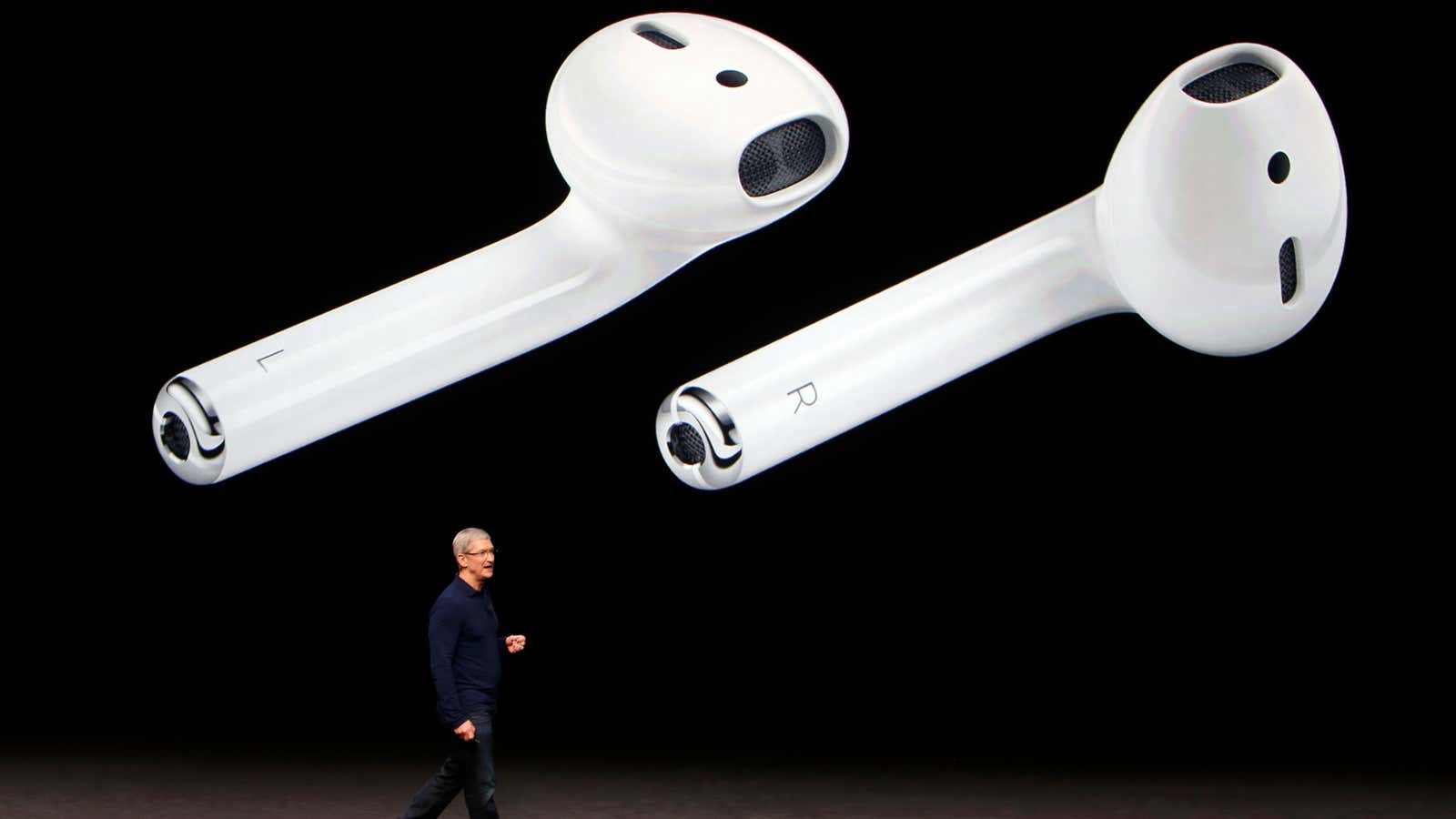A specter is haunting Cupertino, California—the specter of a world increasingly defined by software. Behind the rote glitz and pizzazz of Apple’s iPhone 7 announcement last week lurked unspoken acknowledgements of an uncomfortable truth. The advantages that drove Apple to become the biggest publicly traded company in the world are beginning to disintegrate, and the new competitive landscape is tilted against them. Could it be that Apple is no longer the company to beat?
Once upon a time, Apple had massive advantages in hardware design, UX design, and hardware manufacturing. But its competitors are catching up in all three fields—and, more importantly, all three are decreasingly important. More and more, every tech company’s competitive advantages lie not in its hardware, but in its software. And while Apple is a great design company and a great hardware company, it is only a pretty good software company.
If you looked closely, this new focus on software was very apparent at Apple’s recent event. The new camera’s depth-of-field effect uses “advanced machine learning to make your subject sharp while creating the same out-of-focus blur in the background.” But this is only the beginning. As Om Malik puts it in The New Yorker, “instead of lenses and shutters, software and algorithms are becoming the driving force” in camera design.
Similarly, Apple’s much-maligned new AirPods aren’t just hardware devices—software is crucial to their functioning. Apple proudly proclaims that its new wireless headphones “know when you are listening” and “filter out background noise when you make calls or talk to Siri.” And Siri, in turn, has been upgraded to a state-of-the-art machine-learning system that is part of the widespread adoption of machine learning across every facet of Apple’s ecosystem.
All of this is admirable. Despite the reviews of naysayers disappointed by the iPhone 7, Tim Cook’s Apple remains an ambitious company. As Ben Thompson of Stratechery says, Apple is laying the groundwork for a wholly redefined future. This could also be a reason why the company is obscuring sales data for the iPhone 7; this is the equivalent of a rebuilding year for a football team, and no fan wants to track the record of a rebuilding team too closely.
But is this Apple of the future going to dominate in the same way that the Apple of the past decade has? We shall see. Some of its software, such as OS X, is fantastic. Some of it, such as Apple Maps, initially publicly stumbled before developing into an excellent product. But other flagship Apple software products range from the clumsy (iCloud and Siri) to the embarrassing (iTunes).
Compare and contrast this track record with Apple’s chief competitors, the other four tech giants who seek to rule the world: Amazon, Facebook, Google, and Microsoft, all software companies to their core. Will Siri and AirPods be better than Amazon’s Echo and its inevitable EchoPods? Will people choose to use FaceTime rather than Facebook Live, or the services of iCloud rather than Google’s? (And the less said about Apple’s struggling self-driving car initiative, the better.) If the iPhone 7 is Apple’s first step toward a virtual-reality strategy, as Stratechery suggests, its seems to fair to ask how it will compete with Microsoft’s HoloLens.
There’s no denying that Apple has assembled a team of many, many brilliant software engineers. But there’s also no denying that software is not Apple’s sole focus of excellence—at least not in the way it is for some of its most important competitors. Apple is the behemoth of behemoths, but in the tech industry, revenue is a lagging indicator, and size is no guarantee of success. As of this year, Apple may be the underdog—again.
